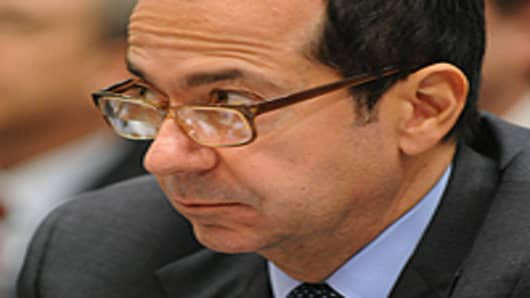Still suffering the repercussions of a huge downswing, hedge-fund manager John Paulson has told employees he’ll pay bonuses for this year out of his own pocket, according to someone familiar with the matter.
Paulson’s flagship fund, Advantage Plus, fell a whopping 53 percent last year – prompting an apology to investors and a media drubbing. The decline also meant that it could be years before Advantage Plus and other fallen Paulson funds are able to return to their high-water mark, or the returns level at which John Paulson and his colleagues can begin to collect a significant percentage of their annual gains as performance fees.
In an acknowledgement of that problem, Paulson recently told some employees he would reset the firm’s internal high-water mark to zero as of Jan. 1, said the person familiar with the matter, effectively meaning that if the company’s funds are in the black for 2012, those employees can collect bonuses pegged to this year’s returns and not be dragged down by last year’s losses. Paulson will pay for those bonuses himself, this person added.
A spokesman for Paulson, which manages some $23 billion, had no comment.
Hedge-fund managers and investors reached Tuesday said they couldn’t recall a recent situation in which a major fund chief had taken similar steps. But Paulson’s gesture, they agreed, would probably help retain antsy employees. So far this year, the firm has lost at least two known figures, including the banking analyst Robert Lacoursiere, who left early in March, and a marketing person in Hong Kong.
During the financial crisis, some fund managers took personal responsibility for bad performances. In 2008 Kenneth Griffin, the founder of the Chicago securities and money-management firm Citadel, swallowed roughly $500 million in expenses after the firm registered losses in its key hedge funds of more than 50 percent, said someone familiar with that situation.
And Griffin’s story has ended happily, at least for now. A little over three years later, on January 17 of this year, Citadel’s two main funds, Kensington and Wellington, crossed their respective high water marks, poising the company once again for performance-related profits.
Follow Kate Kelly on Twitter: @katekellyCNBC




